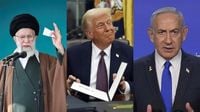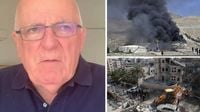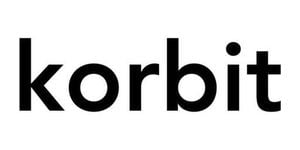On Monday, June 16, 2025, Iran launched a fresh wave of missile attacks on Israel, marking the fourth consecutive day of open warfare between the two regional adversaries. Air raid sirens blared across Israel as powerful explosions, likely from Israel's defense systems intercepting Iranian missiles, shook cities including Tel Aviv. Emergency services reported projectiles striking multiple sites in Israel's north and center, injuring at least 67 people and killing several, including two women and one man in their seventies in central Israel.
The Israeli Magen David Adom (MDA) emergency service confirmed treating 67 wounded from missile strikes at four locations, with most in moderate or mild condition. In Petah Tikva, near Tel Aviv, Iranian missiles hit a residential building, causing extensive damage, blowing out windows, and charring concrete walls. Rescuers searched the rubble for survivors, though casualty numbers from this strike remained unclear.
Iranian state television announced that Tehran had fired at least 100 missiles on Monday, signaling its determination to continue retaliating against Israel’s surprise attack on its nuclear program and military leadership launched the previous Friday. The weekend saw an intensification of tit-for-tat strikes, with Israel claiming Iran fired over 270 missiles since June 13, 22 of which penetrated Israel’s sophisticated air defenses, killing 14 and wounding 390 people. Meanwhile, Iran reported that Israel’s airstrikes had killed 224 people and wounded 1,277, most of whom were civilians, as per Iranian health authorities.
These escalating hostilities have raised fears of a wider regional conflict. The Israeli Defense Forces (IDF) reported striking over 100 military bases in Isfahan province using around 50 fighter jets and claimed to have destroyed more than 120 Iranian missile launchers out of an estimated 360. However, military analysts note that Iran has demonstrated a surprising ability to regroup and continue its missile campaigns despite the loss of senior commanders and infrastructure.
On the diplomatic front, Iran has firmly stated it will not engage in ceasefire negotiations while under Israeli attack. According to officials briefed on communications with mediators from Qatar and Oman, Iran will only pursue serious talks once it has completed its response to the Israeli pre-emptive strikes. This stance has complicated efforts to de-escalate the conflict, even as the International Atomic Energy Agency (IAEA) prepares an urgent session to discuss the fallout from Israel’s bombardment of Iranian nuclear facilities. Russia, China, and Venezuela have supported Iran’s call for this meeting.
Meanwhile, the United States remains deeply involved behind the scenes. A US official revealed that President Donald Trump vetoed an Israeli plan to assassinate Iran's Supreme Leader Ayatollah Ali Khamenei, fearing such an action would escalate the conflict uncontrollably and destabilize the region. Israeli Prime Minister Benjamin Netanyahu, however, denied these reports, calling them "fake," while asserting that Israel will do what it deems necessary. Netanyahu also suggested that regime change in Iran "could certainly be the result" of the ongoing conflict, reflecting the high stakes involved.
Trump himself has expressed optimism about brokering a peace deal between Iran and Israel, drawing parallels to his claimed successes in easing tensions between India and Pakistan, as well as in other long-standing conflicts. On social media, he proclaimed, "Iran and Israel should make a deal, and will make a deal," emphasizing trade as a tool for peace and urging for renewed diplomatic engagement. Intriguingly, Trump also hinted at openness to Russian President Vladimir Putin mediating the conflict, a suggestion that has drawn mixed reactions from international observers.
Beyond the immediate battlefield, the conflict’s ripple effects are being felt globally. In Pakistan’s Balochistan province, which shares a border with Iran, a fuel crisis has emerged due to disruptions in smuggled Iranian fuel supplies. Since Sunday, numerous petrol stations have shut down, causing panic and long queues as residents scramble for fuel. Authorities have suspended pedestrian and trade movements, including fuel deliveries, and sealed border crossings with Iran for security reasons. The federal government has also raised petrol and diesel prices, compounding the strain on the local population.
India, with significant trade exposure to both Iran and Israel, faces risks of collateral economic fallout. The Global Trade Research Initiative (GTRI) has urged the Indian government to review energy risk scenarios, diversify crude oil sources, and maintain adequate strategic reserves. Exporters warn that rising freight and insurance costs due to disruptions in key maritime routes like the Strait of Hormuz and the Red Sea could impact India's exports to Europe and Russia.
Air travel has also been affected. Iranian airspace remains closed, forcing airlines such as IndiGo and Air India to reroute flights, increasing operational costs and flight durations. Additionally, the Indian government has assured the safety of its nationals in Israel, with the embassy in Tel Aviv establishing a 24/7 helpline and advising vigilance amid the ongoing conflict.
In the United Kingdom, concerns about domestic security have heightened. Former MI6 chief Sir Richard Dearlove warned that the UK faces increased risks of lone wolf attacks from Iranian sympathizers, emphasizing the challenge of detecting individuals acting independently compared to larger conspiracies. The Foreign, Commonwealth and Development Office (FCDO) updated travel advice to advise against all travel to Israel and the Occupied Palestinian Territories, noting that travel insurance may be invalidated if ignored. The UK is also deploying additional RAF jets to the region amid escalating hostilities.
Meanwhile, EU foreign ministers have scheduled an emergency video conference to discuss the conflict and coordinate diplomatic efforts to de-escalate tensions. European leaders, including Germany’s Chancellor Friedrich Merz and France’s Foreign Minister Jean-Noel Barrot, have voiced support for Israel's actions against Iran's nuclear ambitions while emphasizing the importance of diplomacy to prevent further escalation.
The human toll continues to rise on both sides. Iran’s health ministry reports 224 deaths since the Israeli attacks began, with over 90% civilians, while Israel’s total death toll has reached at least 19, including civilians killed in missile strikes on residential areas. In Tehran, residents are fleeing to rural areas amid fears of further Israeli airstrikes, with reports of car bombings and anti-regime chants signaling internal unrest. The Israeli military has targeted numerous sites across Tehran, including missile launchers, military headquarters, and nuclear facilities, aiming to cripple Iran’s weapons capabilities.
In Israel, Prime Minister Netanyahu toured areas devastated by missile strikes, vowing that Iran will pay a "very heavy price" for the attacks on Israeli civilians. Israeli officials have warned citizens to avoid "vital areas" to prevent being used as human shields, as Iran continues to launch ballistic missiles towards Israeli cities. The conflict has disrupted daily life, with museums closed, tourism decimated, and tens of thousands of tourists stranded.
As the conflict dominates international attention and the agenda at the G7 summit in Canada, the world watches anxiously. The potential for a protracted and wider war looms, with diplomatic channels strained but still active. The coming days will be critical in determining whether cooler heads prevail or if the region plunges deeper into conflict.





